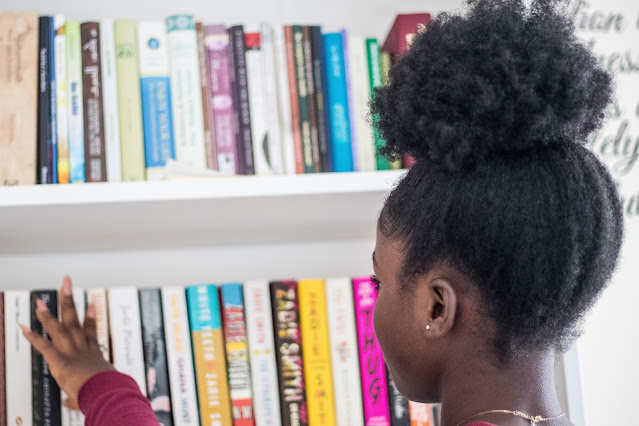The texts and topics we put in front of our kids are challenging. Through these texts, students are learning about topics as wide-ranging as issues of water access around the world, Native American boarding schools, and the ratification of the 19th amendment. The vast majority of the time, students enter a module of study with very little background knowledge about it, and the vast majority of the time, our response is to build some background knowledge before students engage with the texts.
Pre-loading this background knowledge can look like showing videos, reading additional articles, or leading classroom discussions before we engage with a text, and it is done with the very best of intentions.
But I argue that doing this - giving kids background knowledge about the texts before they have the chance to read it for themselves - actually does a disservice to our students.
If, as Doug Lemov writes in Reading Reconsidered, "... our responsibility as reading teachers is to ensure that students can create meaning directly from reading on their own..." (my emphasis added), then giving them our knowledge before they read makes them more dependent on us and moves us farther away from that goal of independence. Our goal is for them to - at the end of the year or the end of school altogether - be able to approach a brand new, really difficult text, and make sense of it all by themselves ... whether or not they have background knowledge about it beforehand.
Now, you may be thinking, "But what about all the research pointing to the role of background knowledge in reading comprehension?" And you'd be right. There's research going back to 1932 that shows readers use their knowledge to understand text, and it's why we know that teaching social studies and science content, reading meaty texts, smart consumption of educational media (think more PBS and less Minecraft), and the like are all no-brainers.
But as Tim Shanahan writes, in literacy instruction, our goal isn't immediate comprehension of today's text; it's to build independent readers. If I'm always giving them background knowledge, instead of helping them develop the habits and behaviors they need to build knowledge from a text themselves, how do they ever learn to tackle a text on their own? Especially when they don't have a lot of relevant knowledge?
I also dispute the claim that readers can't understand texts unless they already know a lot about them. If that's true, how does anyone ever read Shakespeare? Or a college text on chemistry? Or the directions to reset the low tire pressure light on my car? I've been able to make sense of all of those, even without a lot of background knowledge. It wasn't easy, but I called on the behaviors and habits I'd been taught when I grappled with hard texts in a classroom to make sense of them on my own.
I'll also argue that it's this ... this ability to make real sense of a text even when I don't know much about it ... than can level the playing field for our kids. Our students from historically underserved populations - our students of color, students from poverty, students with disabilities - will not come to the table with the same breadth of knowledge as their more affluent peers. But if I can teach a student to make sense of a text even when they lack the background for them ... well, that's a game changer. They can build that knowledge for themselves. It's why Mario Vargas Llosa (2010) calls reading "a vaccine against populism, racism, and nationalism."
Reading is more than finding information in texts that adds to or agrees with what I already know. In fact, we might do well to teach our students to question their prior knowledge, because research shows that knowledge can actually contribute to miscomprehension. If we really want them to learn from a text, they need to be able to set aside misconceptions they hold, approach a text with a sense of intellectual humility, and be willing to change their thinking with new knowledge from a text in hand.
So, instead of pre-loading background information, I encourage you to (as a mentor of mine calls it), let the text do the teaching. Because, as it did for the likes of Abraham Lincoln and Frederick Douglass, reading well allows us to live beyond where we are and independently build knowledge about ourselves and the world around us. And that can change everything.


No comments
Post a Comment